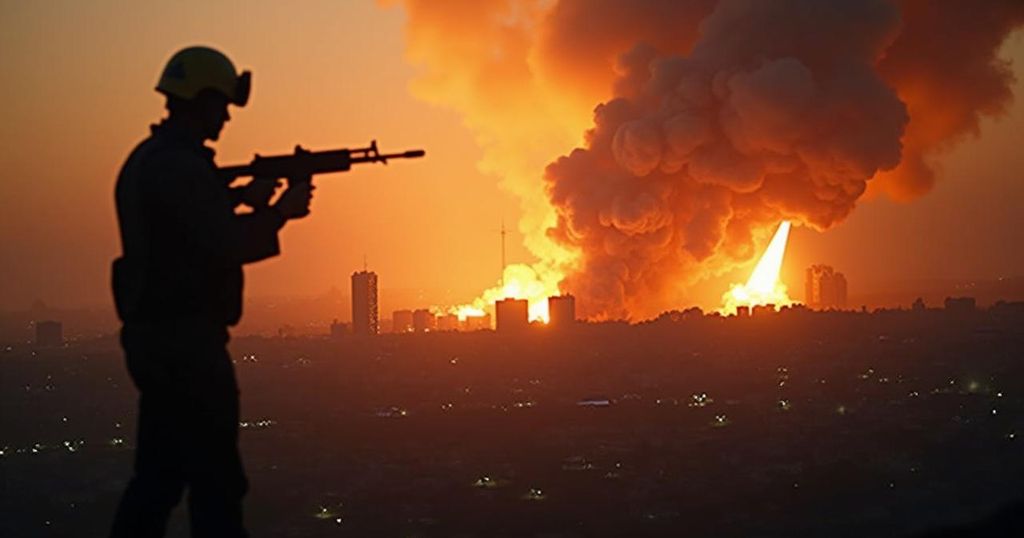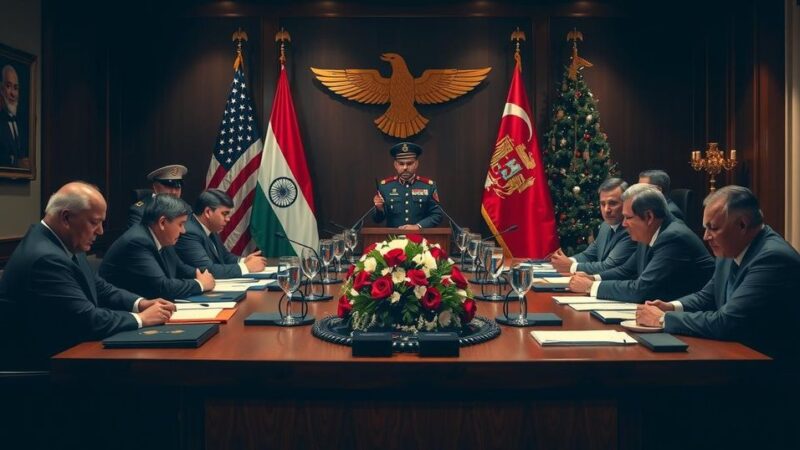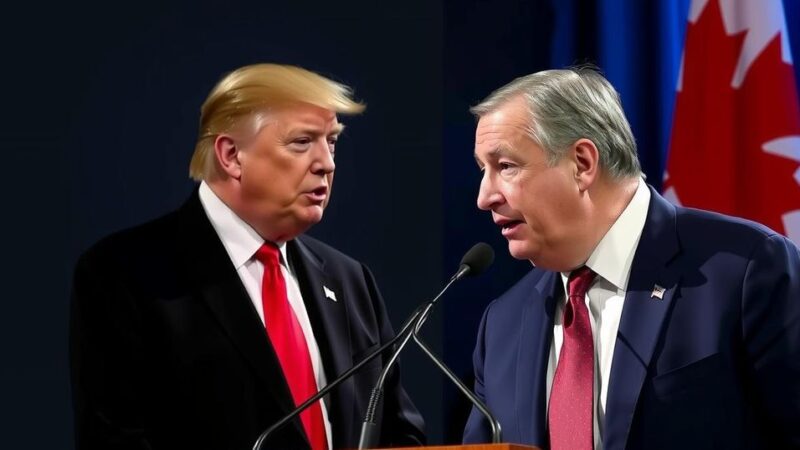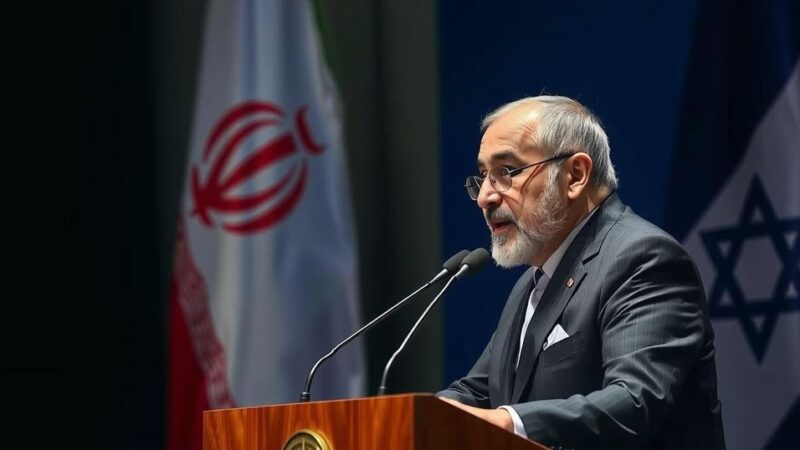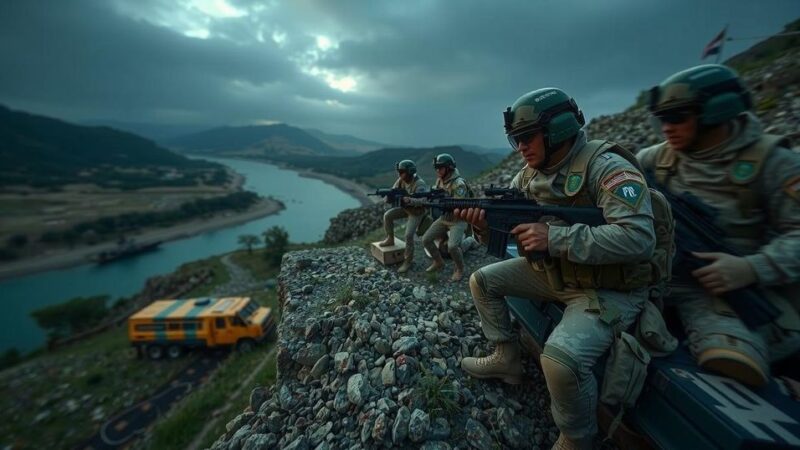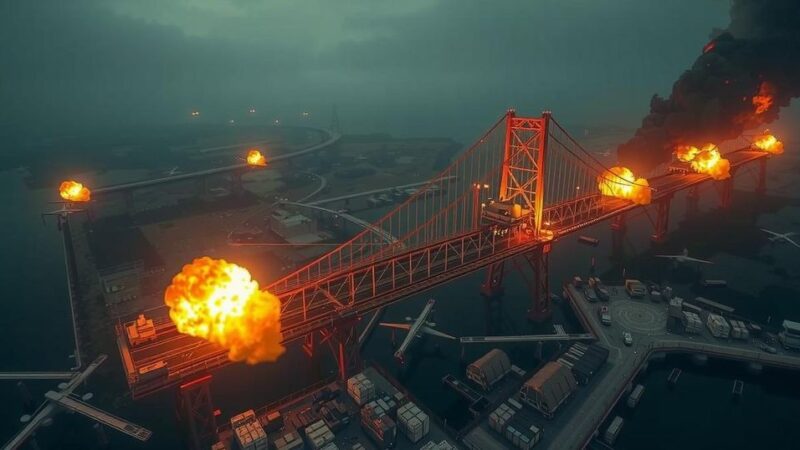Following Iranian missile strikes on Israel, Prime Minister Netanyahu pledges a military response. The ongoing conflict raises fears of a dangerous escalation as civilian casualties mount. Critics argue that U.S. foreign policy has contributed to regional instability, emphasizing the need for leadership to de-escalate tensions.
Following a series of ballistic missile attacks from Iran targeting significant military installations in Israel, Israeli Prime Minister Benjamin Netanyahu has vowed that the nation will respond decisively. Ryan Costello, the policy director of the National Iranian American Council (NIAC), remarked on the precarious state of affairs in the Middle East, commenting, “It’s a very dangerous dynamic where each side is trying to set new red lines or escalate past other red lines, and we don’t know, unfortunately, how devastating this could get.” Costello further rejected the idea that such escalations in violence would lead to a de-escalation of tensions. He pointed to recent reports from Axios indicating the Biden administration’s support for Israel’s approach of “de-escalation through escalation” regarding Hezbollah. He quoted a saying, noting, “An eye for an eye makes the whole world go blind. And I think that’s going to be the case if the parties continue to go down that road of trying to escalate.” Costello asserted that President Biden’s “blank check” to Netanyahu for ongoing military actions in Gaza, as well as strikes against Lebanon, may have provoked Iranian forces to retaliate. He emphasized the need for stronger U.S. leadership, calling for a concerted effort to prevent further escalation before it escalates uncontrollably: “What we really need to see here is some US leadership to pull [Netanyahu] back and try to stop this thing from spiraling out of control before it’s too late.” In a related context, the Israeli military has urged residents in certain areas of southern Beirut to evacuate due to proximity to Hezbollah facilities. Intensive aerial operations in Lebanon have reportedly resulted in at least 55 fatalities in a single day, with previous counts indicating that casualties over the past year have approached 2,000, a toll exceeding that of the 2006 conflict. On this day, Israeli attacks have also hit two residential structures near Beirut, resulting in three more deaths. With tensions mounting, analysts and citizens alike are observing closely to anticipate how the situation will evolve. In Washington, Republican House Speaker Mike Johnson has called for a robust response to Iran, stating, “We pray for their safety and urge the Biden-Harris Administration to deliver a strong message to the Iranian regime that this unjustified violence and terror must end. The strategy of appeasement has failed, and a policy of interdiction is not enough.” He criticized the current administration’s foreign policy as having empowered adversarial actions, urging a return to a stringent pressure strategy against Iran and warning of possible economic and military consequences for these provocations. As developments unfold, Al Jazeera continues to provide live coverage of the situation across the Middle East, including ongoing strikes in Gaza, Lebanon, and retaliatory actions from Iran against Israel.
The Middle Eastern geopolitical landscape has become increasingly volatile following militant attacks and counter-attacks between Iran and Israel. Iran’s recent missile strikes on Israeli military targets have escalated tensions, prompting a reaction from Israeli leadership, specifically Prime Minister Netanyahu’s commitment to retaliate. The U.S. administration, under President Biden, has faced scrutiny for its handling of Middle Eastern affairs, with critics arguing that its policies may have emboldened adversaries such as Iran. Notably, the intensifying conflict in Gaza and Lebanon has resulted in heavy civilian casualties, raising concerns about regional stability as retaliatory measures continue.
The current geopolitical climate between Israel and Iran exemplifies an alarming escalation in military hostilities, with significant implications for regional stability. Experts caution against a tit-for-tat response strategy, urging for diplomatic measures instead of further aggression. As civilian casualties rise and diplomatic efforts wane, the situation remains precarious, with calls for a reassessment of U.S. foreign policy toward the Middle East resonating among political leaders. With ongoing strikes and retaliations, the coming days are critical for assessing how the international community may intervene as tensions are set to increase.
Original Source: www.aljazeera.com
